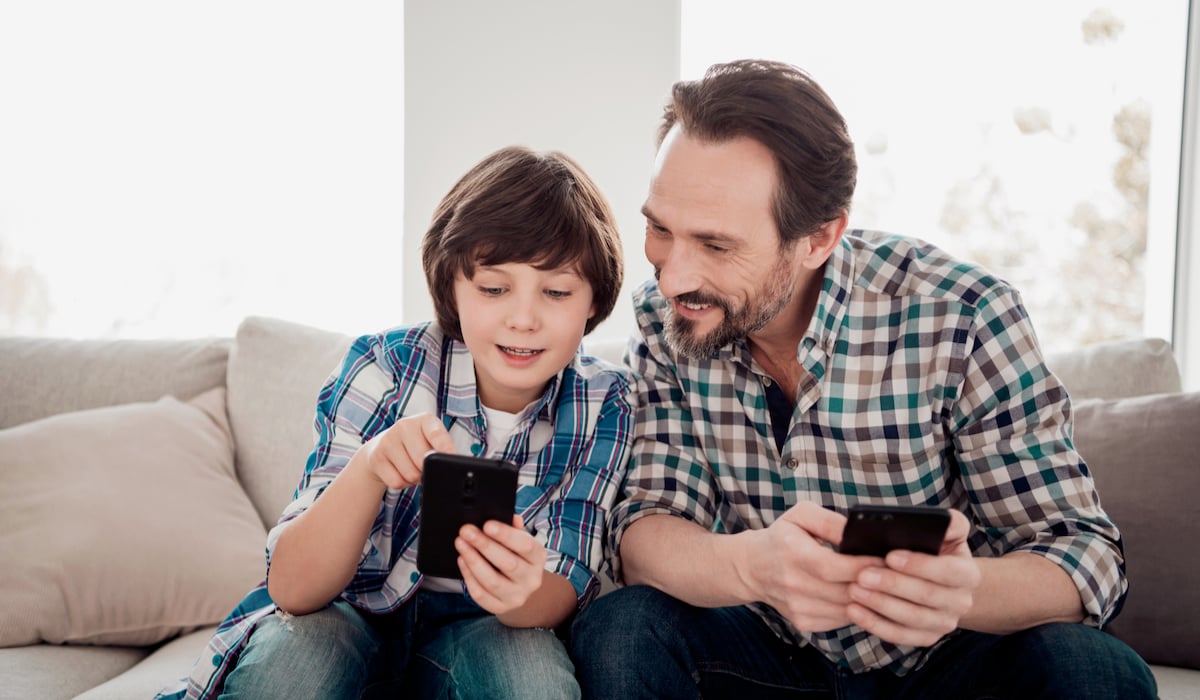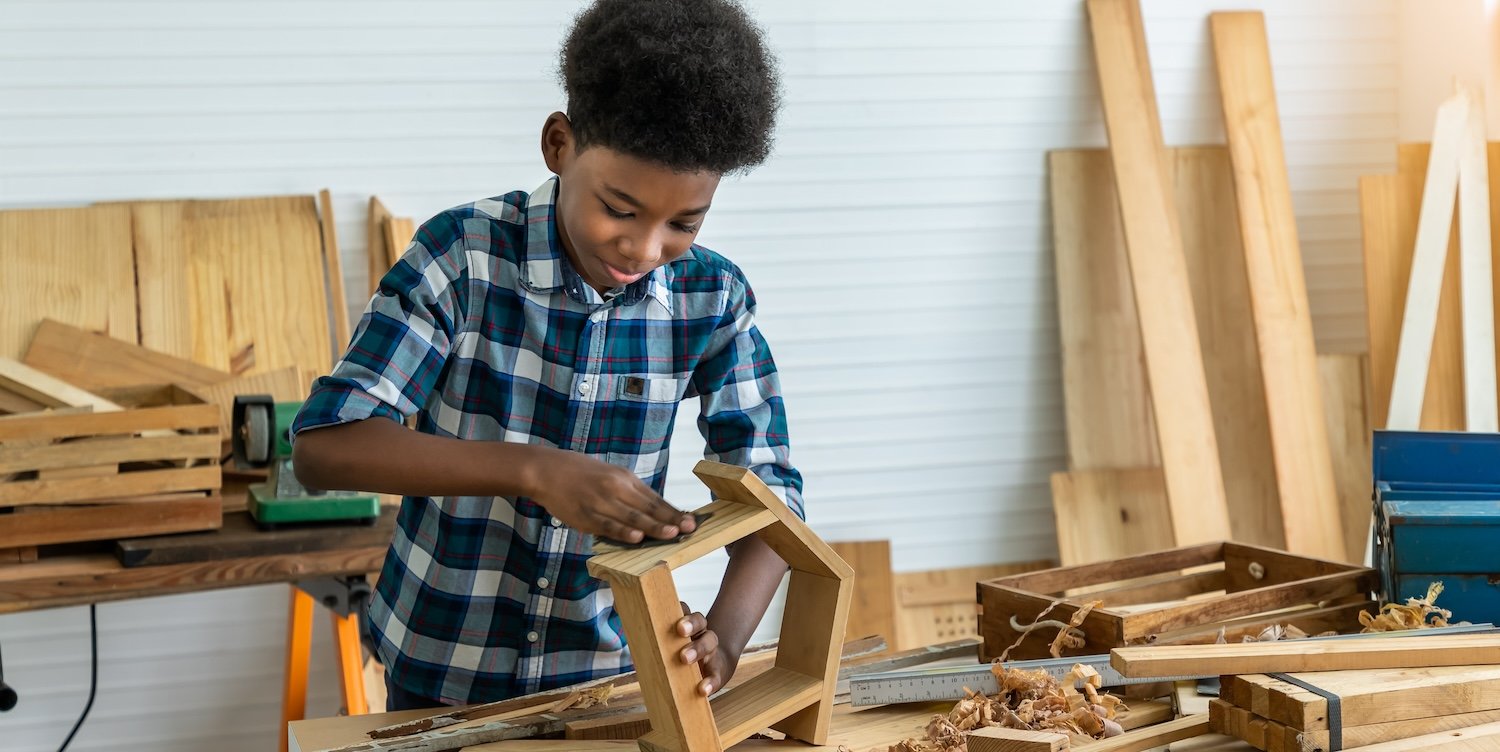Gifting Tech with Success

Every year, amazing new technology is developed that can make our lives easier, more connected, or more fun, and the main targets of advertising for those new gadgets are kids and teens. Whether your son is asking for a tablet, gaming system, smart watch, or his first phone, choosing to provide his own device - whether purchased or handed down - can be a challenging decision. As parents, we want to encourage our children’s creativity and facility with technology but how do we know when they are ready to have their own tech gadget?
Starting in the mid-primary grades, students might begin to feel pressure to have their own technology devices. According to Common Sense Media, 42 percent of kids have a phone by age 10. By age 12, it’s 71 percent, and by 14, it’s 91 percent. While cell phones are popular, kids also receive tablets, gaming systems, and smart watches as gifts starting in their elementary years. From Minecraft to Roblox to Clash of Clans, boys often seek out technology to play games with current friends and to make new friends. Fear of being left out can be a strong motivator for your son to increase his pleas for his own technology.
Listening very closely to the reasons your son wants his own device is key. Does he want to play with friends online? Watch videos? Start his own YouTube channel? Learn to code? He might have a multitude of reasons why he wants new technology and as a parent it is important to match the right tool with his goal, even if it is a different tool than he is requesting. My son was begging to have a Nintendo Switch to play games with his friends but after conversations with those friends’ parents we discovered that the games their sons played were only available on Playstation. Additionally, if you as parents have reasons you want your son to have a phone because he needs to communicate about rides or is home alone, the default does not necessarily have to be a smart phone with data. Sometimes a non-smart phone or a shared family cell phone might be sufficient to meet his needs and would be easier to manage.
If you think a technology purchase might be right for your son, there are several things to consider. Is he responsible with his personal belongings? Does he lose or misplace things? Is he careful when using shared family tech devices? If he struggles with these basic skills, it’s reasonable to ask that he improve in these areas t before even considering getting him his own device. He should be able to consistently use technology devices gently and should be able to control his frustration if games become challenging so that he isn’t slamming or throwing technology. While some boys struggle with managing their emotions – especially frustration and disappointment – he should be able to demonstrate consistent care of shared technology before he has his own device.
If he passes the physical responsibility test, the next and most important consideration is to ask yourself if you are ready for him to have his own device. Sure, he will be the one spending most of the time using it, but you as the parent will be the one responsible for setting it up and monitoring his use of it. It is wise to consider if you have the technical know-how to set up the device so that there are guardrails in place for your son depending on his age. If you have concerns about the set-up, a handed down device from a parent, older sibling, or other family member might be the best place to start. Having something that is already familiar and perhaps already configured to the highest privacy settings can be one less worry when handing your son his first device.
Even more importantly, consider if you are ready to set clear expectations about its use and commit to consistent monitoring to ensure that your son is using the device in a way that meets your expectations. If you can establish clear guidelines for how, where, and when your son can use technology, you will save your family the turmoil of having to adjust expectations and rules if bad habits begin. Monitoring how your son is using his device must be an ongoing process as he grows and starts to use new games, apps, or programs. Even if he continues to play the same games, over the years they may change their privacy settings, thus leaving your son more vulnerable to interactions with strangers for which he might be unprepared.
Having his own device will allow your son more independence with using apps. This is perhaps your most important consideration when purchasing a new device. The Children’s Online Privacy Protection Act of 1998 (COPPA) is federal legislation that requires that certain websites and apps that collect personal information verify that their users are 13 years old or older. Most social media sites are included in COPPA, meaning that these sites are not intended for children under 13 and parents should be extra cautious when allowing even older kids access to these sites. Not only are these sites collecting personal data, but many times they also have a chat or interactive feature that can open your child up to interaction with strangers. Even gaming sites like Roblox and Minecraft have a chat component that can be frequented by kids and adults alike.
Having regular conversations with your son about how he is using these sites and who he is talking to is imperative to keeping him safe online. In addition to those conversations, parents should actively monitor their children’s chats, direct messages, or gaming conversations to make sure that they are engaged in positive and safe digital communication. As your son shows that he can consistently follow the rules, you may lessen some of your monitoring, but frequent conversations and some monitoring should continue well into his teen years. Common Sense Media is a tremendous resource for parents, giving instructions on setting up parental controls as well as reviews of apps, games, and other helpful information.
If your son is opening an exciting tech gift this holiday season, he might be tempted to play exclusively with that device and neglect his previous interests. Encouraging time away from technology and balancing his digital life with other interests is important in learning and growing as a well-rounded person and a powerful reminder for us all. Save time for your family to enjoy the beauty of winter lights away from the blue light of screens.
Lisa Ulery, the Director of Technology and Libraries at University School, has over 15 years of teaching and library experience in both public and independent schools. With a master's degree Instructional Technology, she is passionate about helping teachers and students balance their technology-rich lives.


%202.jpeg)
